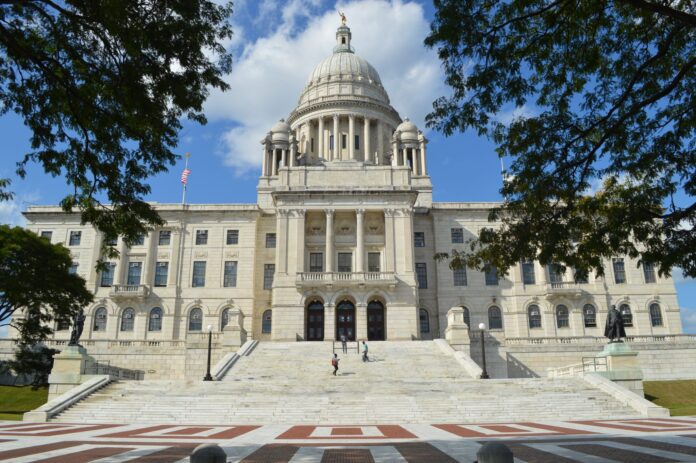
PROVIDENCE – How long can Rhode Island go without a budget?
Gov. Gina M. Raimondo said this week it could go on for several more weeks. She’s trying to avoid difficult cuts to state personnel and services, she said, which would be the effect of a fiscal 2021 budget that is authorized under the current fiscal state.
If the U.S. Congress can agree on aid to states – something that up to now hasn’t happened – then Rhode Island may see more funds, or perhaps more flexibility in how to spend the $1.25 billion that the state received earlier this year as part of the initial federal relief for the impact of COVID-19.
Rhode Island’s elected leaders are waiting for a few weeks to see what transpires, Raimondo said Wednesday in a Q&A period that followed her weekly coronavirus update.
“I’m talking now to House and Senate leadership to say, let’s give ourselves a few more weeks to see if Congress does something, before they head off to run for office,” Raimondo said. “If they don’t, we’re absolutely going to have to reconvene and pass a new budget. And that budget will absolutely have layoffs. It will absolutely have cuts to social services. It will absolutely have all the stuff I’ve been trying to avoid.”
The pandemic and resulting business slowdowns have wreaked havoc on the state’s revenue. But Raimondo up to this point has not laid off state employees or required furloughs.
City leaders, who say they haven’t received any of the state’s $1.25 billion in pandemic assistance, are challenging Raimondo to release needed help.
Last week, the Rhode Island League of Cities and Towns said Raimondo was withholding millions in lump sum budget payments to the communities, citing $42.2 million in payment in lieu of taxes amounts. The PILOT funds were required by law to be paid in full on July 31, the association said.
“Delaying these state payments will lead to serious financial challenges for some communities,” said James Diossa, the Central Falls mayor and president of the league.
On Tuesday, the state controller, Peter B. Keenan, released a preliminary closing statement for fiscal 2020 that revealed some good news. General revenues were $141.8 million more than estimated at year’s end, a 3.6% increase. And expenditures were $46.1 million less than budgeted.
The state ended the fiscal year ending June 30 with a surplus of $180.4 million, with $120 million of that the result of a transfer from the budget reserve account.
But state revenue is still depressed compared with what state officials originally anticipated when they started 2020. In May, the state revenue and estimating conference ended with a projected deficit of nearly $800 million between the current fiscal year and 2022.
The losses attributed to the pandemic include drops in lottery revenue, as well as income and sales taxes.
And now, two months into fiscal 2021, the state is operating under last year’s budget.
That doesn’t address nearly $270 million in ballot initiatives that Raimondo had requested in her January budget proposal. They included $117.3 million for higher education improvements, $87.5 million for housing and infrastructure, and $64 million in beach, water and environmental improvements.
Time is running out for the state to place three bond questions before the Nov. 3 General Election voters.
The state has a deadline of Sept. 19 under federal law to get ballots mailed to military and overseas voters, according to a spokesman for the R.I. Secretary of State’s Office.
The office has asked that all state bond questions be submitted by Sept. 14.
When asked what the General Assembly could do about the bonds, a spokesman for House Speaker Nicholas A. Mattiello said discussions were ongoing.
As for the budget, spokesman Larry Berman said “it would be premature to put a timetable on the budget at this point. The leadership of the House and Senate is in close consultation with the governor. They are monitoring progress and awaiting additional guidance from Washington.”
Looking ahead to the next fiscal year, the state’s budget chief has told department heads to anticipate a tough year, because while there may be federal help in fiscal 2021, none is expected in fiscal 2022.
On Aug. 7, Jonathan Womer, director of the R.I. Office of Management and Budget, told department heads to ready budgets for fiscal 2022 that represent a 15% reduction. The departments have a deadline of Oct. 1 to submit these to his office.
“If circumstances change, such as federal support in FY 2022 or significant spending reductions in the FY 2021 budget that would carry forward into FY 2022, the constrained budget reduction target could be reduced,” he said.
Mary MacDonald is a staff writer for the PBN. Contact her at MacDonald@PBN.com.












